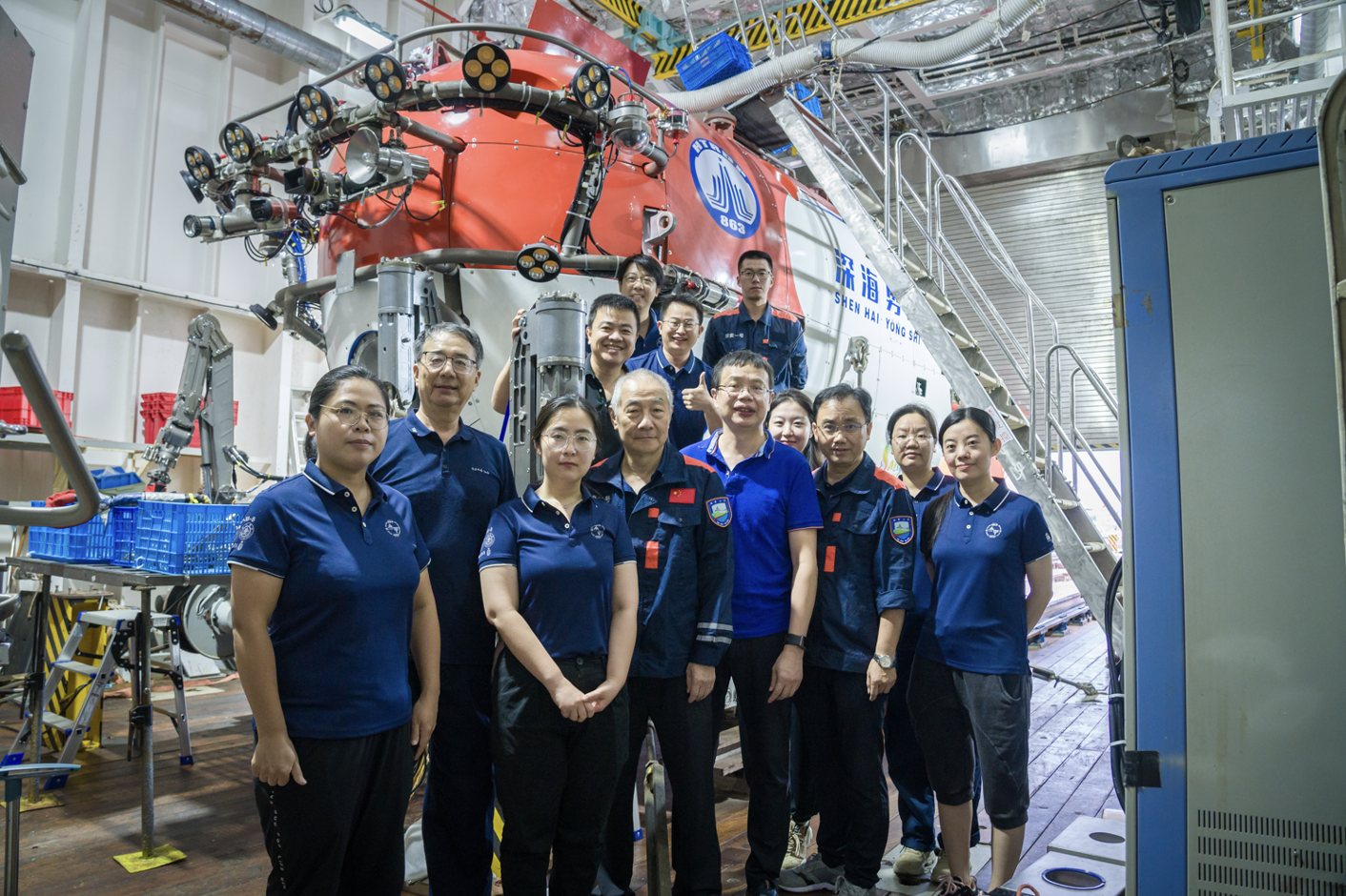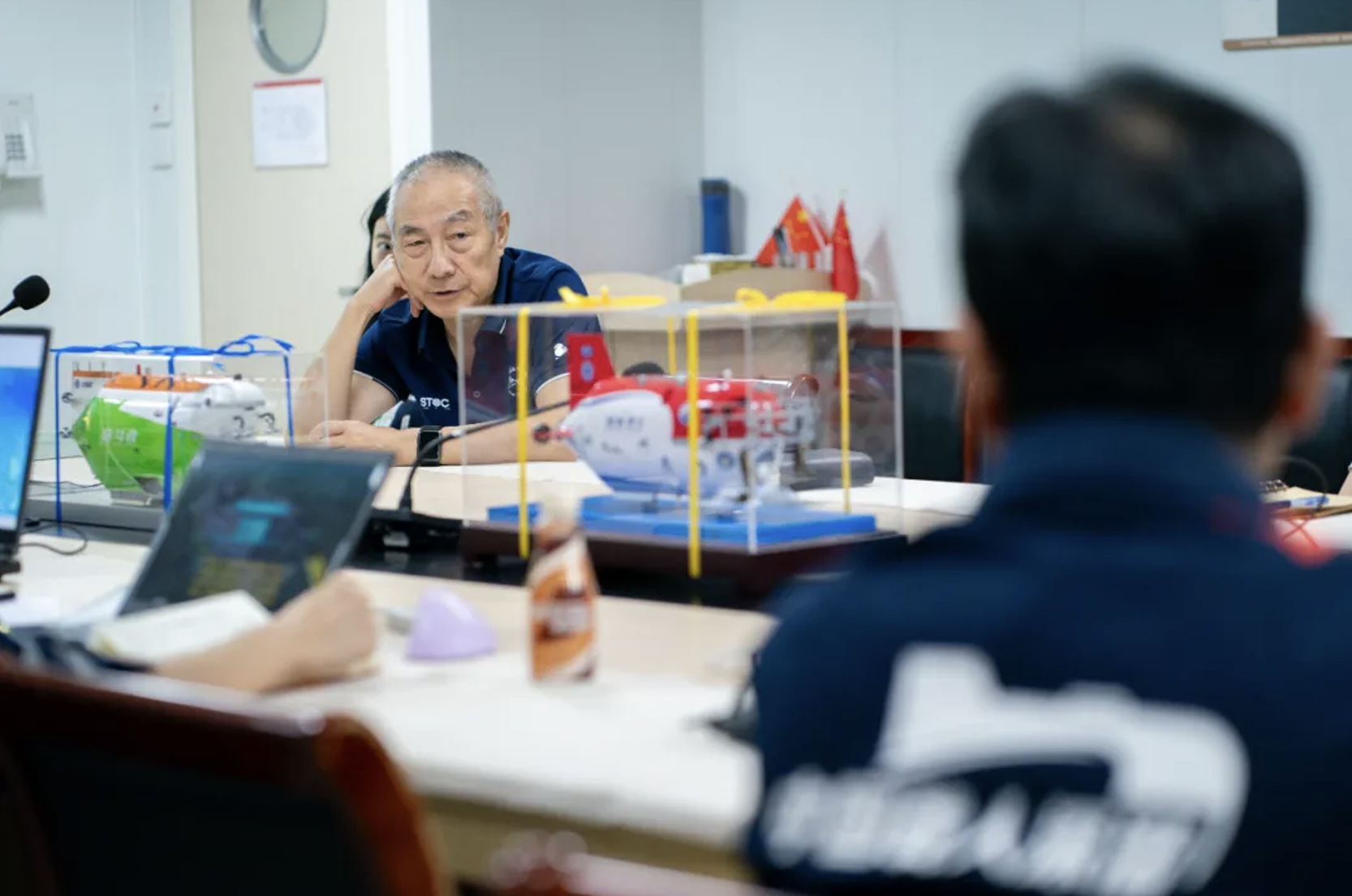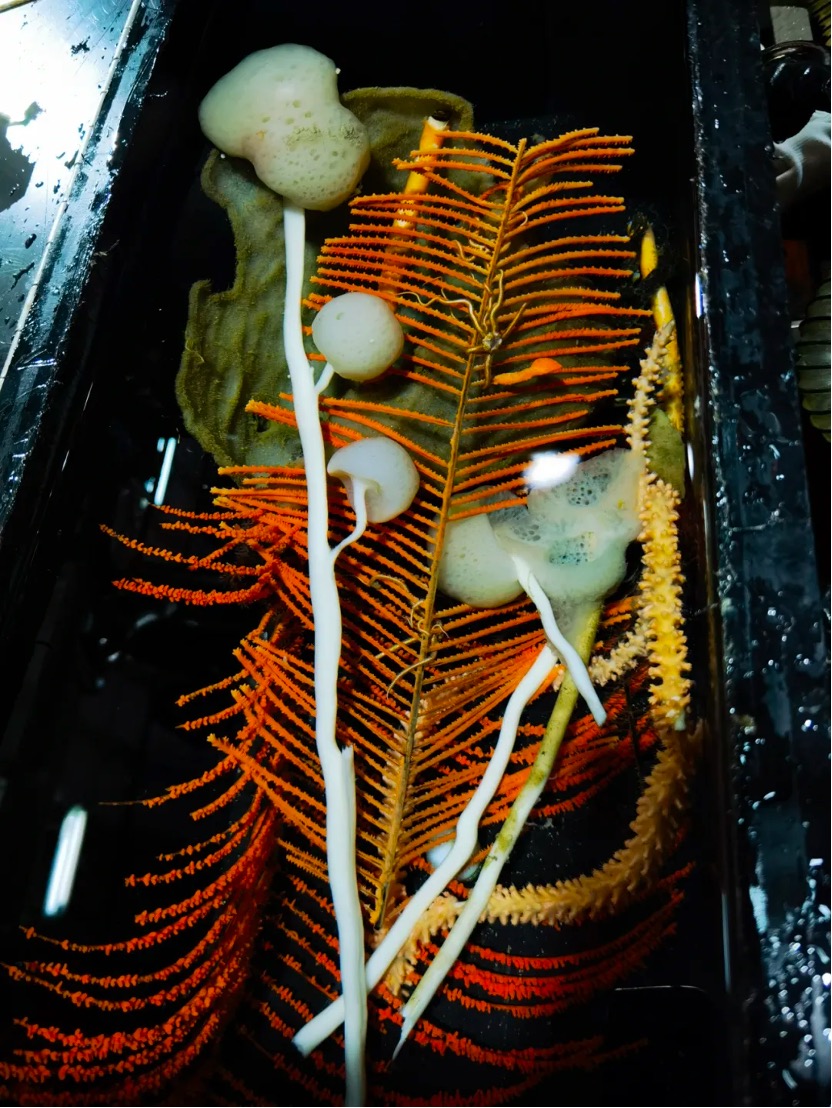Following their scientific expedition to Mount Everest in May, BGI Group's Co-founder and Chairman, Wang Jian, led a team of researchers on a deep-sea exploration mission in late July. Partnering with institutions including the Institute of Deep-Sea Science and Engineering at Chinese Academy of Sciences, Shanghai Jiao Tong University, and Hong Kong University of Science and Technology, the team embarked on the "Tansuoerhao" research vessel to explore the cold seep areas of the China’s southern sea area. The mission aimed to conduct deep-sea observations for more knowledge of the unknown deep-sea world.
 Wang Jian (middle), Co-founder and Chairman of BGI Group, along with a team of scientists on "Tansuoerhao" research vessel.
Wang Jian (middle), Co-founder and Chairman of BGI Group, along with a team of scientists on "Tansuoerhao" research vessel.
Wang Jian, along with other scientists, utilized the "Shenhai Yongshi" manned submersible in regions such as the Haima cold seep and Ganquan platform. During this expedition, the team collected valuable scientific imagery and samples of deep-sea benthic organisms, including mussels, clams, tubeworms, sea cucumbers, anemones, brittle stars, armored shrimp, corals, and sponges.
The expedition focused on exploring the origins of life and ecosystem development in extreme environments, explained Wang Jian. The release of chemical energy from cold seep vents supports entire ecosystems, providing insight into the geochemical processes that may generate the basic building blocks of life. Understanding the transmission and impact of materials and energy from the Earth deep interior on ecosystem formation and evolution remains a key research objective.
 Wang Jian speaking at a science research meeting on the "Tansuoerhao" research vessel.
Wang Jian speaking at a science research meeting on the "Tansuoerhao" research vessel.
The ocean covers over 70% of Earth’s surface. About three-quarters of this expanse is deep sea (below 1,000 meters depth), characterized by extreme conditions such as darkness, high pressure, and low oxygen levels, traditionally deemed inhospitable to life. Discoveries of hydrothermal vents and cold seeps, along with their biological communities, have revolutionized scientific understanding of deep-sea ecosystems.
 Samples collected from the deep-sea expedition.
Samples collected from the deep-sea expedition.
In recent years, BGI Group has collaborated with multiple research teams, continuously advancing into extreme environments—from plateau research to deep-sea abyssal explorations. They have participated in multiple scientific expeditions and implemented related research plans. To date, BGI Group has taken part in over 10 deep-sea scientific expeditions.
In December 2021, during the first voyage of the "Fendouzhe" manned submersible, a team of participating scientists, including those from BGI Group, jointly initiated the "Mariana Consensus." This initiative aims to establish a standardized platform system for deep-sea scientific research, ensuring the long-term preservation and sharing of deep-sea samples and data, supporting international large-scale scientific cooperation in deep-sea research, and collaboratively tackling major scientific issues such as the formation and evolution of the Earth's hadal zone systems, the origin of life and environmental adaptation, biodiversity, and climate change.



